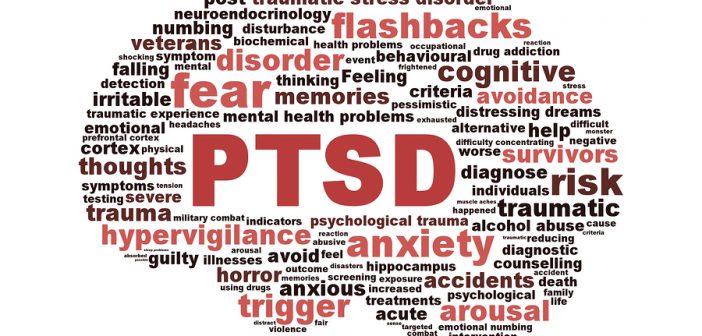Post-Traumatic Stress Disorder (PTSD) – a mental health condition triggered by a terrifying event – often remains shrouded in silence and misunderstanding in India. Despite significant strides in mental health awareness, PTSD continues to be an under-recognized and under-treated issue. This article delves into the incidence of PTSD in India, exploring its prevalence, misconceptions, debilitating effects, and the pathways to healing.
A Looming Shadow: The Prevalence of PTSD in India
Studies suggest that PTSD is far from uncommon in India. Research conducted in various regions has revealed a wide range of prevalence rates, ranging from 10% to 70% in populations exposed to traumatic events. These events can encompass a spectrum of experiences, including natural disasters, violent crime, war, accidents, and even childhood abuse.
The devastating effects of natural disasters like cyclones, floods, and earthquakes can leave lasting psychological scars. Children and adolescents are particularly vulnerable, as evidenced by a study conducted after a super cyclone in Orissa, where over 30% of children exhibited symptoms of PTSD.
Violence, both personal and communal, is another significant contributor to PTSD in India. Victims of sexual assault, domestic abuse, or witnessing violent acts are at high risk of developing the condition. Additionally, the complexities of conflict zones and terrorist attacks can leave lasting psychological trauma on individuals and communities.
Lost in Translation: Misconceptions Surrounding PTSD
Despite its prevalence, a lack of awareness and understanding often surrounds PTSD in India. Common misconceptions can hinder people from seeking help:
-
Misattribution of Symptoms: Symptoms like hypervigilance, flashbacks, and emotional numbness are often misinterpreted as weakness or character flaws. This can lead to self-blame and social isolation.
-
Myth of “Strength”: The cultural emphasis on stoicism and resilience can discourage individuals from acknowledging emotional distress. Seeking help for mental health concerns might be seen as a sign of weakness, preventing timely diagnosis and treatment.
-
Supernatural Explanations: In some communities, PTSD symptoms might be attributed to supernatural causes, leading individuals to seek help from religious healers rather than mental health professionals.
These misconceptions can have a detrimental impact on the lives of those suffering from PTSD. It’s crucial to recognize that PTSD is a legitimate medical condition, not a personal failing or a sign of weakness.
The Devastating Impact of Untreated PTSD
Left untreated, PTSD can have a crippling effect on various aspects of an individual’s life. Some of the most significant consequences include:
-
Impaired Relationships: Symptoms like irritability, emotional withdrawal, and difficulty trusting others can strain relationships with family, friends, and romantic partners.
-
Work Difficulties: Concentration problems, nightmares leading to sleep disturbances, and hypervigilance can significantly impact job performance and career prospects.
-
Substance Abuse: Self-medication through alcohol or drugs is a common coping mechanism for those struggling with PTSD, leading to addiction and further health complications.
-
Suicidal Ideation: The overwhelming emotional burden of PTSD, coupled with a sense of hopelessness, can increase the risk of suicidal thoughts and behaviors.
Unveiling the Scars: Symptoms of PTSD
PTSD manifests itself through a cluster of symptoms broadly categorized into three groups:
-
Intrusions: Nightmares, flashbacks, and intrusive thoughts about the traumatic event can be highly distressing and disrupt daily life.
-
Avoidance: Individuals with PTSD might avoid situations, people, or places that trigger memories of the trauma. This can lead to social isolation and withdrawal.
-
Hyperarousal: Being constantly on edge, difficulty concentrating, and an exaggerated startle response are common symptoms of hyperarousal, making it difficult to relax or feel safe.
The Path to Healing: Treatment Options for PTSD
Fortunately, effective treatments are available for PTSD in India. Here are some key approaches:
-
Psychotherapy: Cognitive Behavioral Therapy (CBT) is a particularly effective form of therapy for PTSD. It helps individuals identify and change negative thought patterns and coping mechanisms associated with the trauma.
-
Eye Movement Desensitization and Reprocessing (EMDR): This therapy technique uses guided eye movements to help individuals process traumatic memories in a less distressing way.
-
Medication: Antidepressant medications can be helpful in managing symptoms like anxiety, depression, and sleep disturbances, which often co-occur with PTSD.
-
Support Groups: Connecting with others who have experienced similar traumas can provide invaluable support, validation, and a sense of belonging.
Conclusion: Breaking the Silence on PTSD
PTSD is not a badge of shame, but a mental health condition requiring treatment and support. By raising awareness, dismantling misconceptions, and increasing access to mental healthcare services, India can create an environment where individuals with PTSD feel empowered to seek help and embark on the
embark on the path to healing and reclaim their lives. Here are some key steps forward:
-
Public Awareness Campaigns: Destigmatizing mental health through educational campaigns aimed at the public and healthcare providers is crucial. Disseminating information about PTSD symptoms, treatment options, and available resources can encourage people to seek help.
-
Mental Health Training for Professionals: Equipping healthcare professionals with the knowledge and skills to identify and diagnose PTSD is essential. This includes training doctors, nurses, social workers, and counselors.
-
Culturally Sensitive Approaches: Developing culturally sensitive treatment approaches that resonate with diverse populations in India is crucial. This might involve incorporating traditional healing practices alongside evidence-based therapies.
-
Telehealth and mHealth Solutions: Leveraging technology like telehealth and mobile health (mHealth) applications can expand access to mental healthcare services, particularly in remote areas with limited resources.
A Hopeful Future: Building Resilience Together
By working together, individuals, communities, and mental health professionals can create a future where PTSD is understood, acknowledged, and effectively treated. With increased awareness, access to resources, and culturally appropriate support systems, India can empower those suffering from PTSD to heal, rebuild their lives, and contribute meaningfully to society.
Remember, PTSD is not a life sentence. With proper support and treatment, individuals can overcome the trauma they have experienced and live fulfilling lives. Let’s break the silence on PTSD and create a future where everyone has the opportunity to heal and thrive.





